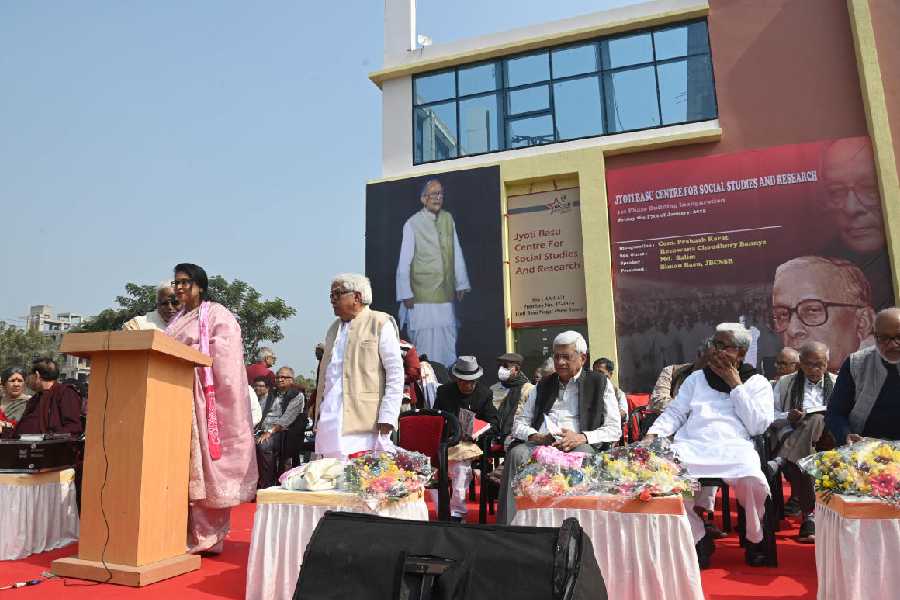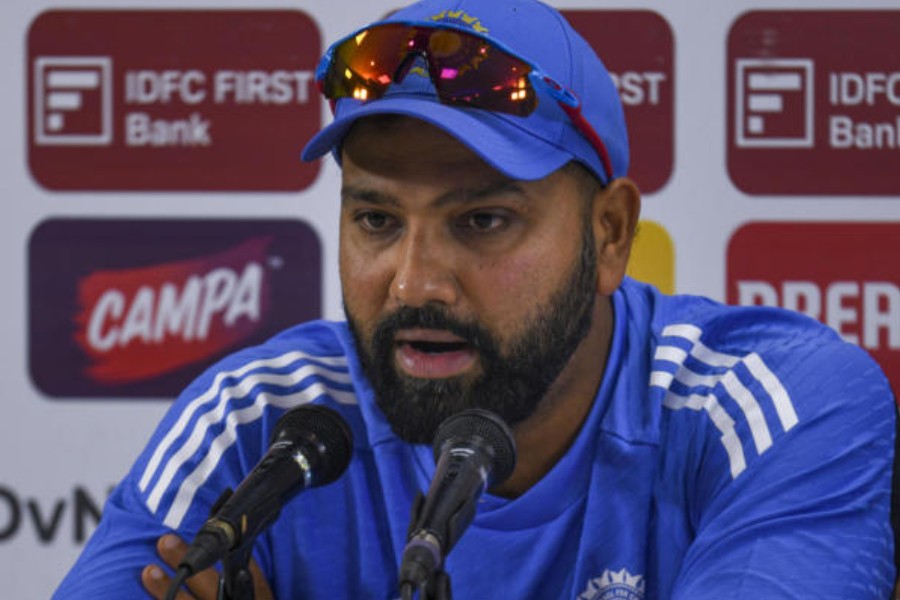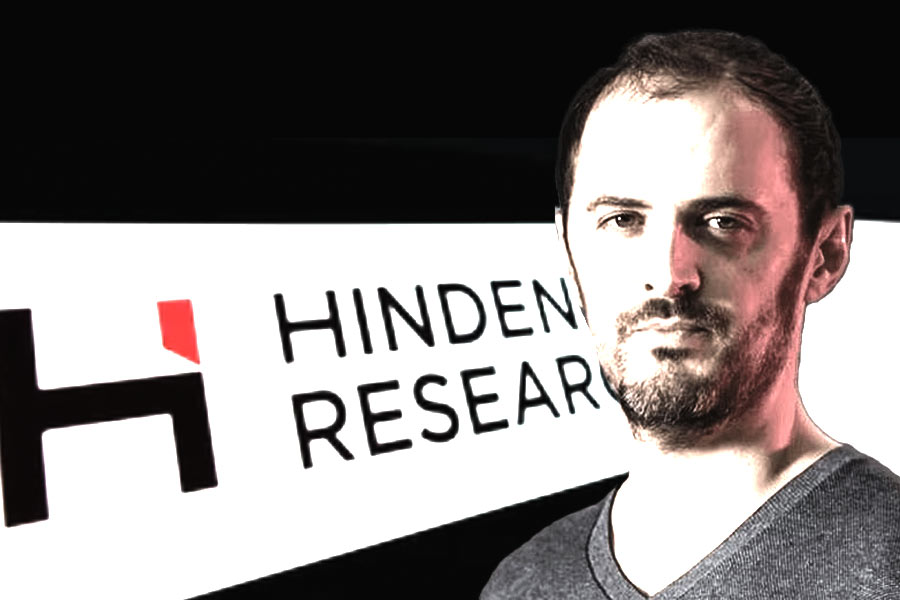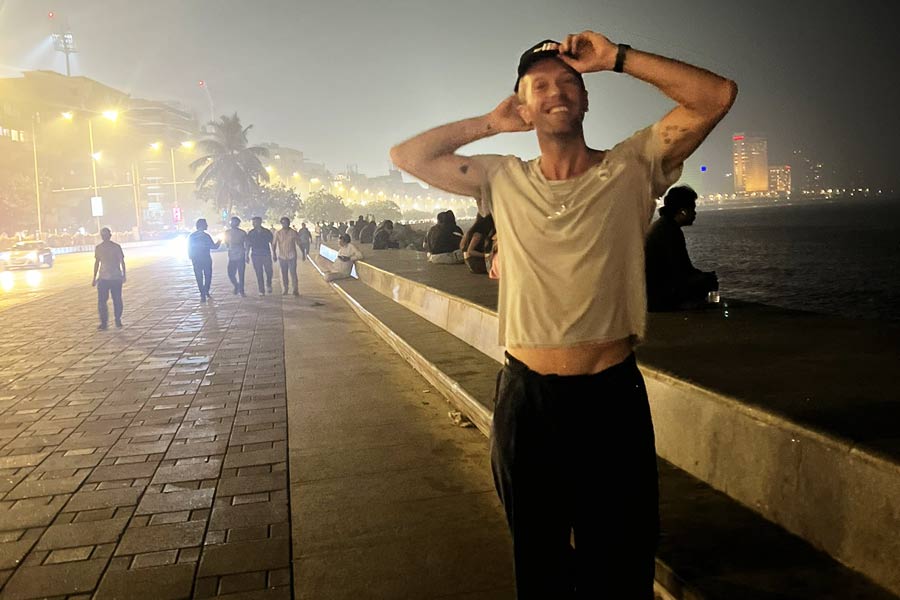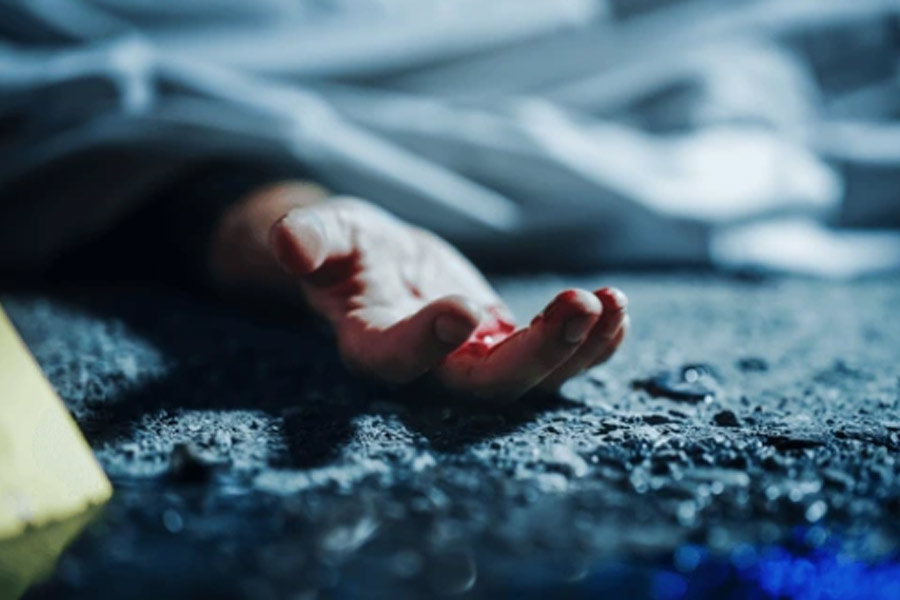Bangladeshi singer Rezwana Choudhury Bannya and CPM’s politburo coordinator Prakash Karat touched on two lasting legacies of Jyoti Basu — friendly ties with Bangladesh and its people and his dogged resolve to fight Hindutva forces — during the inauguration of the first phase of a research centre named after the former Bengal chief minister.
The CPM invited the Bangladeshi Rabindrasangeet artiste as a “special guest” for the inauguration of the building for Jyoti Basu Centre for Social Studies and Research at New Town on the occasion of the veteran Marxist’s 16th death anniversary. Basu had ruled the state from 1977 to 2000.
The invitation to Choudhury was to send across the message that the turmoil in the neighbouring country, marked by allegations of attacks on minorities and anti-India rhetoric, following the ouster of Sheikh Hasina and the formation of an interim government led by Muhammad Yunus, should not impede people-to-people ties.
Speaking after setting off the event with three songs of Rabindranath Tagore, Choudhury in an anecdotal reference to Basu implied how the Marxist was fond of Bangladesh and its people.
“Once, I had gone to meet the extraordinary personality. When he learnt that I was from Dhaka and had brought bakarkhani (a kind of sweet bread), he smiled and became nostalgic about Bangladesh. He spoke a lot about how he spent his childhood and the days spent at his ancestral home (at Baradi), which is not far from Dhaka,” Choudhury said while emphasising the role that the centre named after Basu should play in developing friendly ties between India and Bangladesh.
“I believe that this centre will have a major contribution to ensure a good relationship between the two countries while enabling impactful research for the Bengali-speaking population of the two nations,” Choudhury said.
In his speech, Karat,
however, moved to India, dwelling on the other part of Basu’s legacy that revolved around his role as an “exemplar” for communists to work in the legislature and state governments” while focussing on his resolve to fight
communal forces.
With almost all members of the CPM’s politburo and the central committee, barring the notable exception of Kerala chief minister Pinarayi Vijayan, in attendance at the event, Karat recalled Basu’s role in the aftermath of the Babri Masjid demolition in 1992 and said if the leader were alive today, he would have led the fight against the rightwing BJP.
“I want to recall that after the demolition of the Babri Masjid on the sixth of December, 1992, comrade Jyoti Basu had called the party (BJP) and the forces behind the demolition as barbarians. At that time the barbarians were at the gate. Today they have captured state power and they are trying to make Hindutva the official ideology of the state. That is why it is very necessary to recall the legacy and work of comrade Jyoti Basu. If he was alive today, he would have been at the forefront of the struggle of secular and democratic forces against those dark forces that seek to subvert the secular, democratic bases of India,”
Karat said.
Setting out a role for the research centre, Karat said that it should engage in fact and evidence-based research to bring out the truth to wage a political and ideological war beyond the electoral space against forces of “unreason and irrationality”.
CPM state secretary Md Salim echoed the politburo coordinator and said when the governments in Bengal and at the Centre were trying to hide facts the research centre would engage in evidence-based studies to bring out the reality.
Presided over by CPM veteran Biman Bose, the two-storey building on a five-acre plot at New Town at present houses a library and a few personal belongings, including a collection of books, of the former chief minister.
At the space that showcases the personal belongings of Basu, a lifesize statue of the Marxist veteran in his customary dhooti and outta with a pen tucked in his pocket drew the attention of the people who visited the centre after its inauguration.
But the leaders on the dais and the people who had turned up for the gathering missed Buddhadeb Bhattacharjee and Sitaram Yechury whose pictures flanked the two sides of the stage. Both the leaders passed away last year.
CPM leader Rabin Deb lamented that “Sita (as he was fondly called) could not be present. He was here on the same day last year and I had promised to make it ready for inauguration today. But then...”
Karat also echoed Deb’s sentiments.
“While we are observing this happy occasion, we also miss the presence of comrade Buddhadeb Bhattacharjee and comrade Sitaram Yechury who were associated with the launching of the project,” Karat said.

